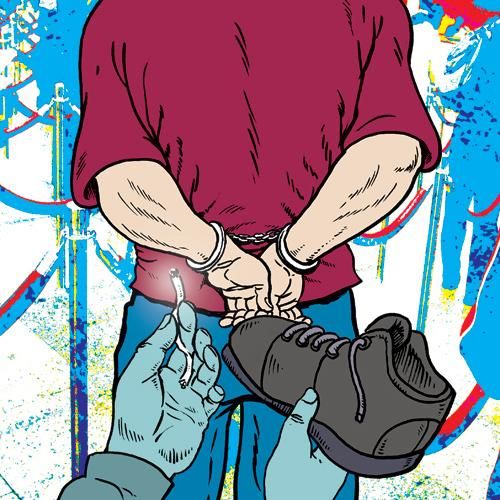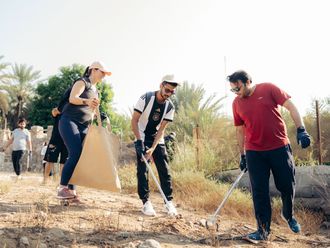The British Embassy is adding its voice to a travel advisory issued to the United Kingdom residents by a legal charity warning of strict drug laws in the UAE that landed 59 Britons in jail here in 2007.
Legal charity Fair Trials International has issued an “urgent warning'' to all travellers to the UAE to ensure “they are completely free of any substances prohibited by that country''.
The charity issued the call when one of its clients, Keith Andrew Brown, 43, of Middlesex, was sentenced to four years in prison after 0.003 grams of cannabis was found in the “tread of his shoe by customs officials in Dubai'' last September.
British Embassy officials say travellers can't be too careful.
“When it comes to drugs, we want visitors to the UAE to be aware of the consequences,'' Simon Goldsmith, spokesman for the British Embassy in Dubai, told XPRESS. “Our travel advice is explicit and has long advised that the penalties for drug offences in the UAE are severe.''
“Our key message is simple and applies to everyone; know before you go, research your destination and obey local laws,'' he said.
Being mindful of local laws will help visitors be aware of even the most unusual of customs not akin to British society, he said, and will keep travel between both countries moving.
Fair Trials International Chief Executive Catherine Wolthuizen said her organisation is working to find out precisely which substances are banned in the UAE and has written letters asking the Ministry of Health here for a list of illegal drugs.
She said in a statement that the “list of banned substances in the UAE includes many medications available over the counter in other countries, such as codeine, a common ingredient in pain relief and cold-flu medication, as well as poppy seeds, a common baking ingredient''.
One thing that travellers are not aware of are laws in the UAE that forbid visitors from possessing illegal substances even in their urine or bloodstream. If a person is tested by authorities and they are confirmed to have consumed the substances, they can be prosecuted and jailed.
Zero tolerance means just that, she said.
“We even have reports of the imprisonment of a Swiss man for possession of three poppy seeds on his clothing after he ate a bread roll at Heathrow,'' she said.
“With the UAE becoming one of the most popular tourist and transit destinations in the world – in part due to extensive marketing of its beaches and shops – travellers need to know the risks they face if they are not completely clean of any banned substance or do not have a prescription for any medication they are carrying.''
To avoid the risk, Wolthuizen suggests leaving any medications at home in the UK because it can, according to her research, be difficult to get a detailed confirmed list of which drugs are approved in the UAE.
She said the organisation has written to the UAE Ambassador and Customs Minister asking them to publicise the list, so that travellers can be better prepared.
To view the Fair Trials list of banned substances, log on to www.fairtrials.net.
According to its website, some recent cases handled by Fair Trials International:
Robert Dalton, 25
The Kent man flew to Dubai in November last year to holiday after completing his economics degree and was promptly arrested after authorities searched him and said they found 0.03 grams of cannabis on his person. He faces four years prison.
West Yorkshire man, 20
Arrested at Dubai airport on January 16, 2008, en route from Pakistan to the UK. Police at the airport allege that he was carrying 0.02 gram of cannabis in his pocket.
London man, in his 40s
Arrested on May 7, 2007, at Dubai airport on his honeymoon. Customs officials found two grams of cannabis in the pocket of a pair of shorts in his suitcase. He claimed he had forgotten it was there. He was sentenced to four years' imprisonment but was granted amnesty in Ramadan and released in October 2007.
Tracy Wilkinson, 45 of West Sussex
Arrested at Dubai airport in 2005 for possession of codeine, a common pain relief medication, which she had been using to ease chronic back pain. She was held in custody for eight weeks before officials accepted proof from her doctor of its use for prescribed medical purposes only.
(Source: Fair Trials International)











